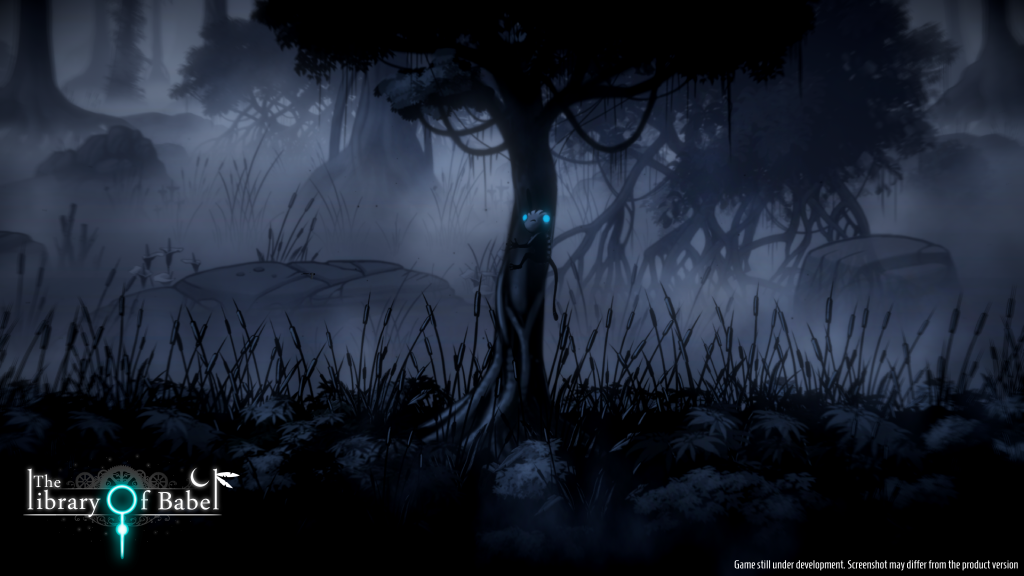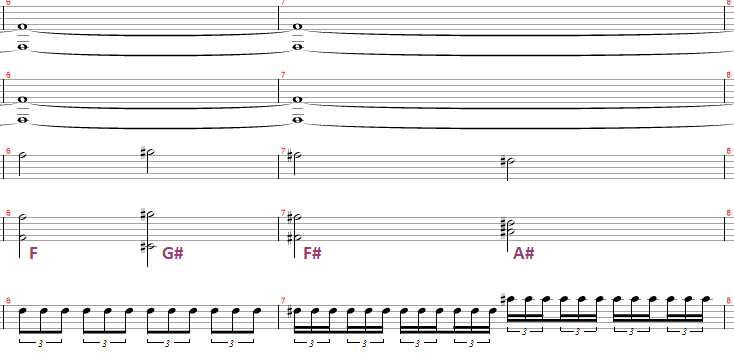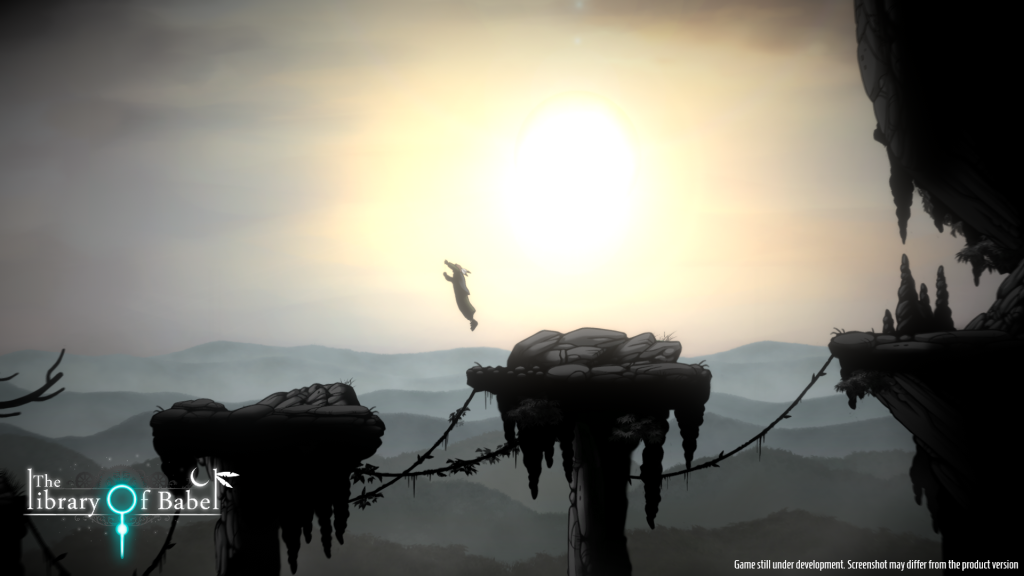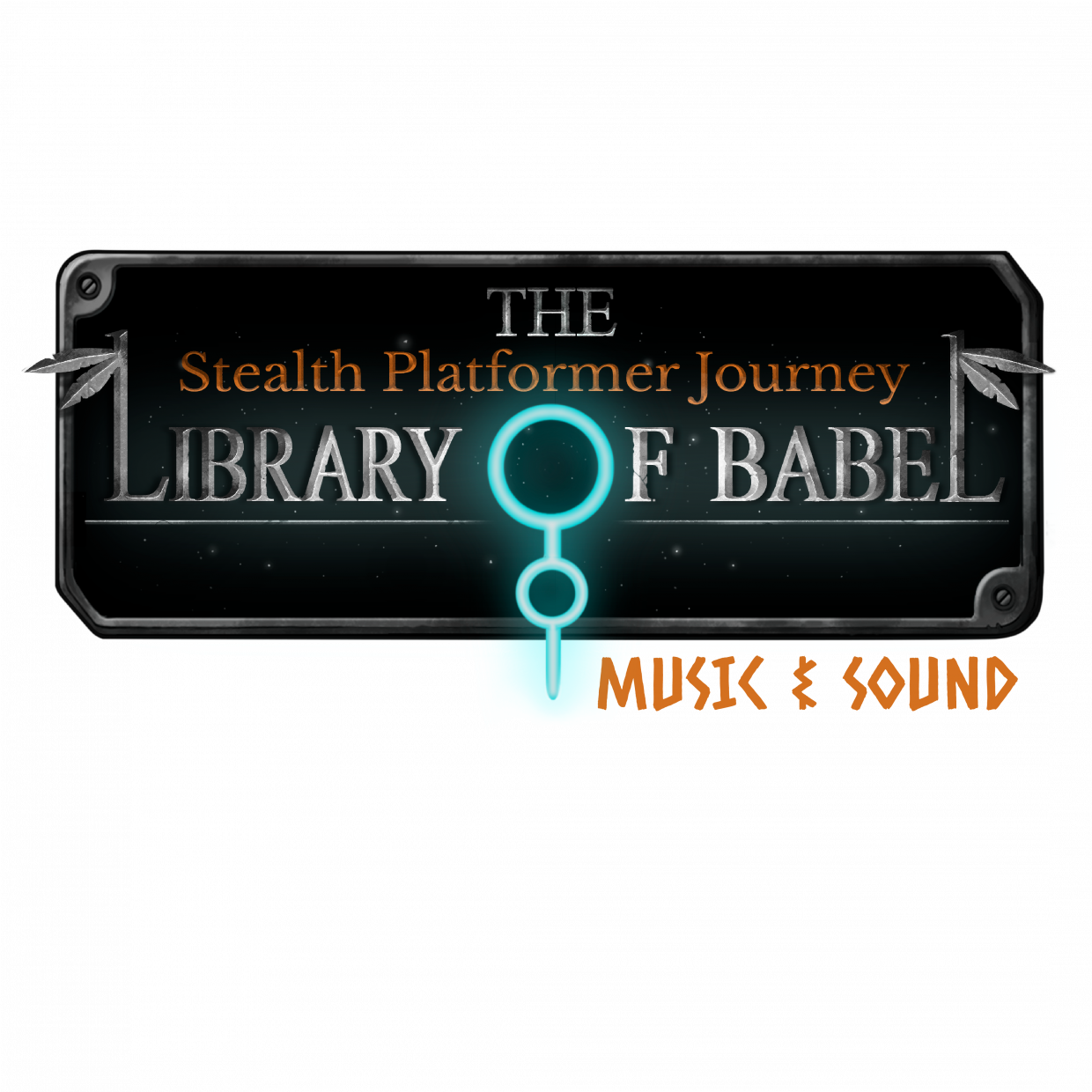Music and sound as fundamental pillars in The Library of Babel
For the original sound track of The Library of Babel, given that it’s a different kind of project in which two seemingly almost antagonistic genres are mixed (although we wholeheartedly believe they are perfectly complementary), we wanted to move away from the tendency of current video game OSTs, where a general ambience track is played, with the addition of extra sounds during situational events.
Although it is true that this mechanic creates a very visceral and palpable atmosphere, we wanted to incorporate a little bit of that vintage essence, where the harmonies and melodies almost take a front seat, bringing a characteristic feel and soul to the in game environments.

With this mix of ethereal atmospheres and beautiful, aesthetic, scenes, our musical proposal is born from two clear and evident leitmotivs: One represents the world in which we find ourselves, a futuristic Babylonian Mesopotamia (F, G#, F#, A#), covered in abundant forests and jungles, mangroves and mountains: A dark atmosphere, cryptic and mysterious, but at the same time ancestral and solemn, represented wonderfully in the in game aesthetics. Wherever we go, this leitmotiv is apparent, taking various forms, but gently accompanying us on our journey, adapting to each environment we find ourselves in.

For example: the soundtrack in the mountains has sections punctuated by silences, with flutes dramatically shifting between high and low notes, provoking a sense of vertigo or possible falls (cliffhangers), at night we can find smooth, silky textures, that hide crude harmonies that trigger a state of alertness, bringing a relaxed and balanced atmosphere, subtly punctuated by tense and mysterious moments, as if one was lost in the thickness of an untamed jungle.

In each of the themes present in the ecosystems, we can also find a primary sound, recurring and central: This is the soul of our Seeker, Ludovik. A mechanical sound, robotic and unnatural, that also provides us with an indication of his “heartbeat” during more active scenes. Despite the possibility of Ludovik dying during these scenes, his tone remains unwavering, serene and patient. He knows that one false move means his untimely demise.
On the other hand, we have our second leitmotiv: The interior of Babel (B, A, B, E, C)

It can be heard during all locations where its’ history or events connect with The Library, and represents the melancholy that comes with being the keeper of all memories, events and thoughts, those that have happened and have yet to happen. An almost enigmatic state, caused by the atemporal nature of our story.
Written by Eric Luque, transalted by David Haigh

